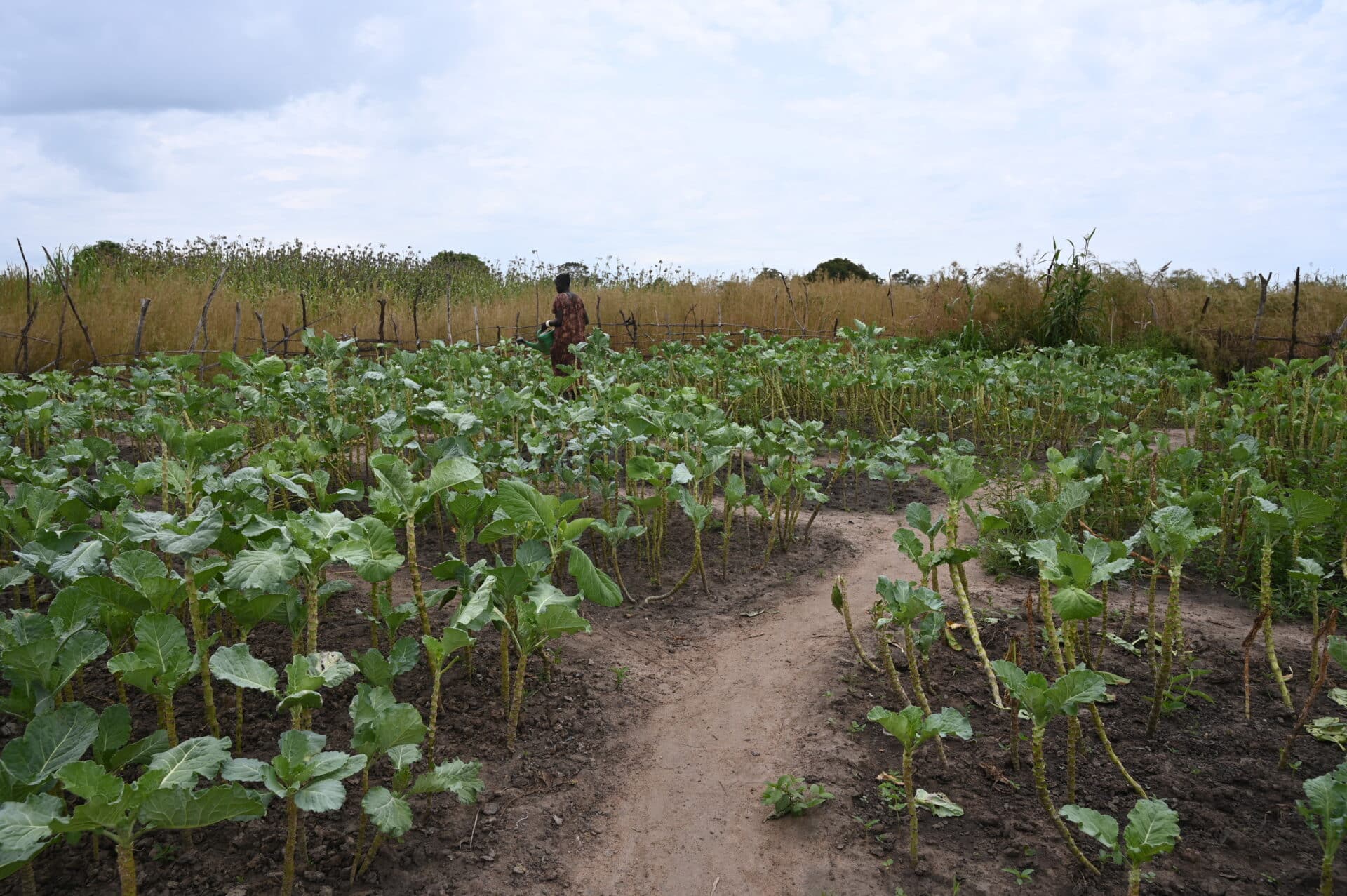We asked several female farmers about their experiences of climate change, and how their work at the MAGIS Agricultural Institute – a Jesuit Missions’ partner – has helped them address this.
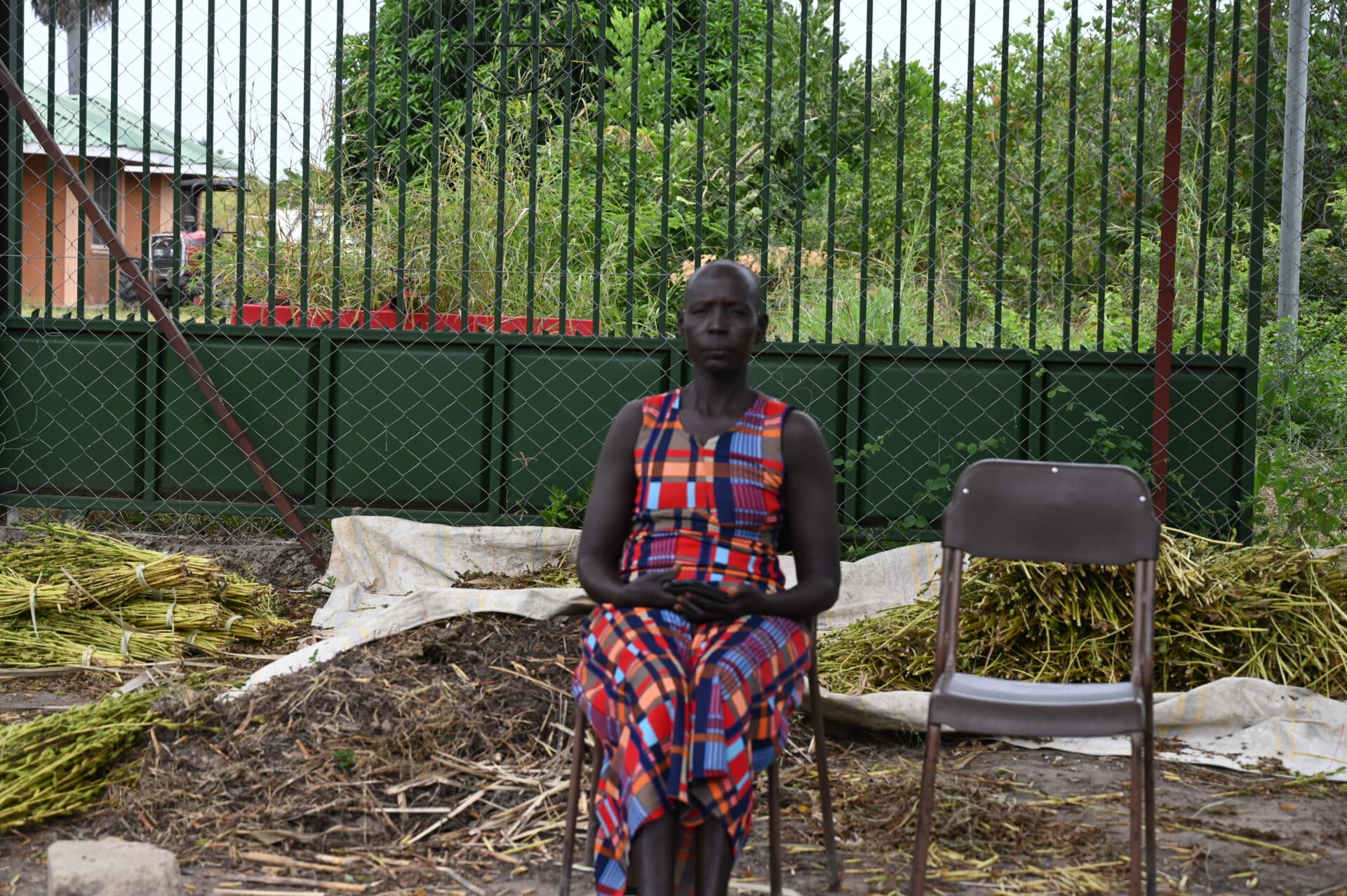
My daily income depends on vegetables growing, especially sorghum – both the long and short variety.
Climate change has had a huge effect on my farming, particularly the farming of cereal crops. When I used to farm groundnuts, I used to get a good yield. But due to climate change, drought and late rains, I hardly get [anything]. Now we tend to our vegetables through watering.
MAJIS has helped me a lot. One of the benefits I had from the programme was taking my kids to school, which I couldn’t do earlier as I am a widow. Secondly, I’m able to get two meals or three meals a day, which was not possible before. It is very difficult to get regular meals as a widow.
Because of the MAJIS training in tailoring, I am able to have proper clothes. Again, without a husband, having nice clothes would not be possible otherwise, because I wouldn’t have the income. The training that I have gotten, has made this happen.
My son has married and has a child, but they have no cows. The money that I make from selling clothes makes it possible for me to buy milk for my grandchild.
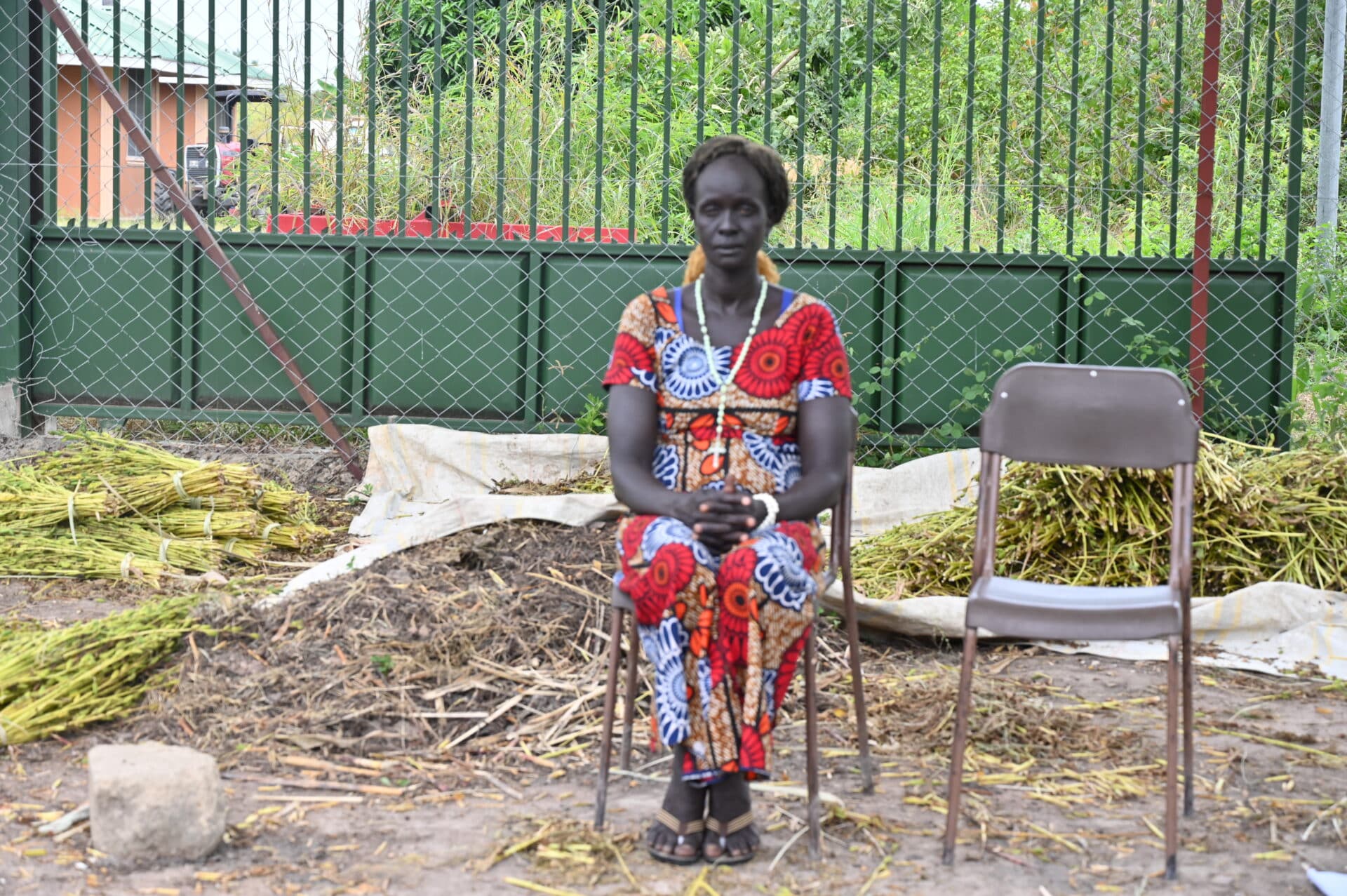
My daily routine involves me going to work on the farm. When it rains, I start with cultivation, followed by weeding and, finally harvesting.
Things have been seriously affected by climate change. This year there was a serious drought. The rain came late and, when it did start raining, it stopped again. It means there has been no produce from the cereals in the gardens. We are not producing enough sorghum due to the drought.
Our community has been badly affected, but we are resilient and we will try to absorb these uneven weather patterns over time.
MAGIS has taught me how to grow vegetables effectively through digging, which has led to better harvests. I have implemented this training at home. It has changed my life.
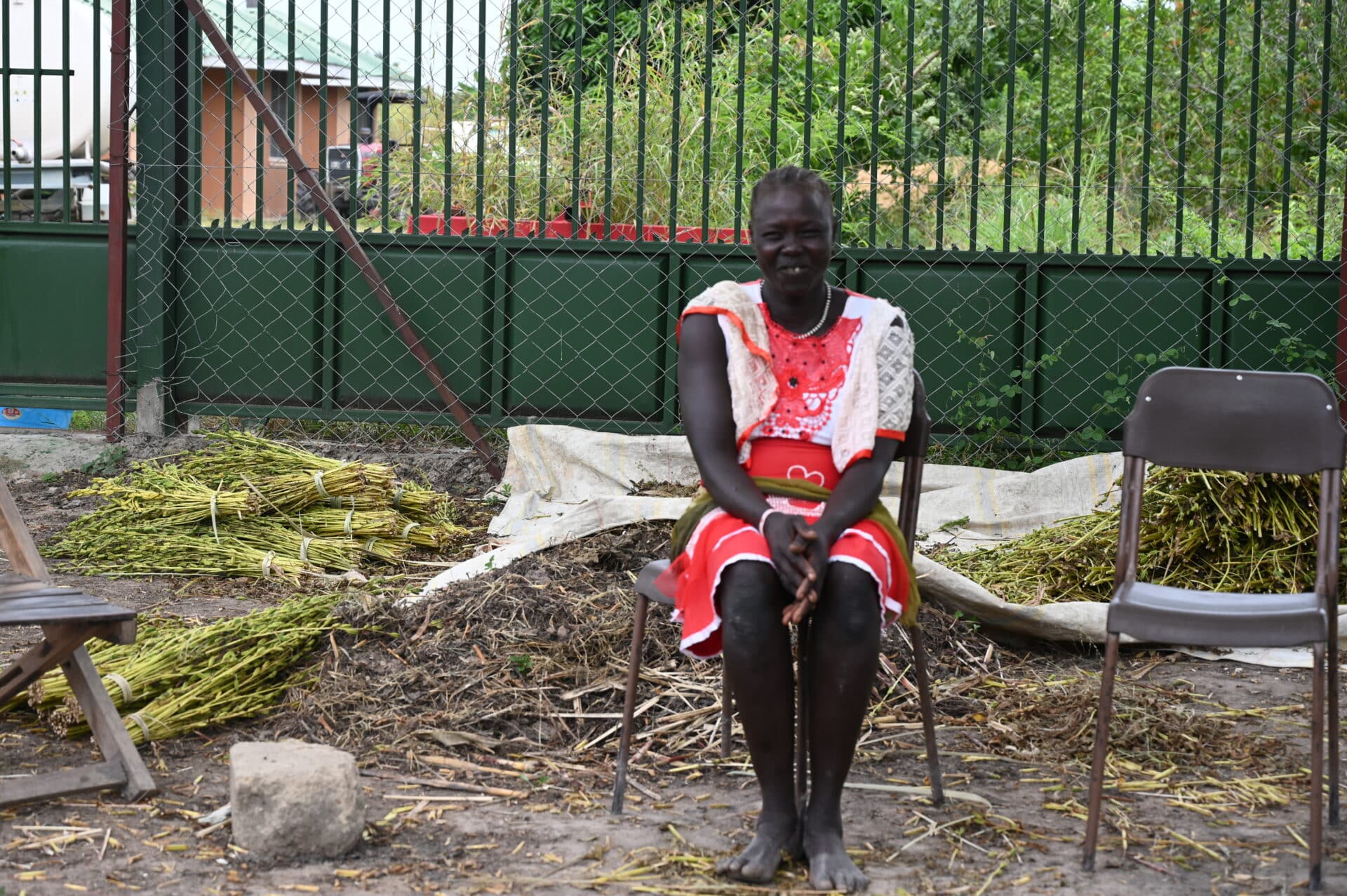
Climate change is affecting our work. This year, because of the drought, anything we were able to cultivate dried up.
Even when the rain did come, it stopped again. So the little we had left also dried up. It meant we were left with nothing at the end.
The training I have received from MAGIS has really helped. It has allowed me to provide food for my children.
The income I earn means I can take them to hospital if they need to be treated for malaria. I can also pay for them to go to school, and for their school materials.
I am also implementing the skills I have learnt in my own home.
How you can take action






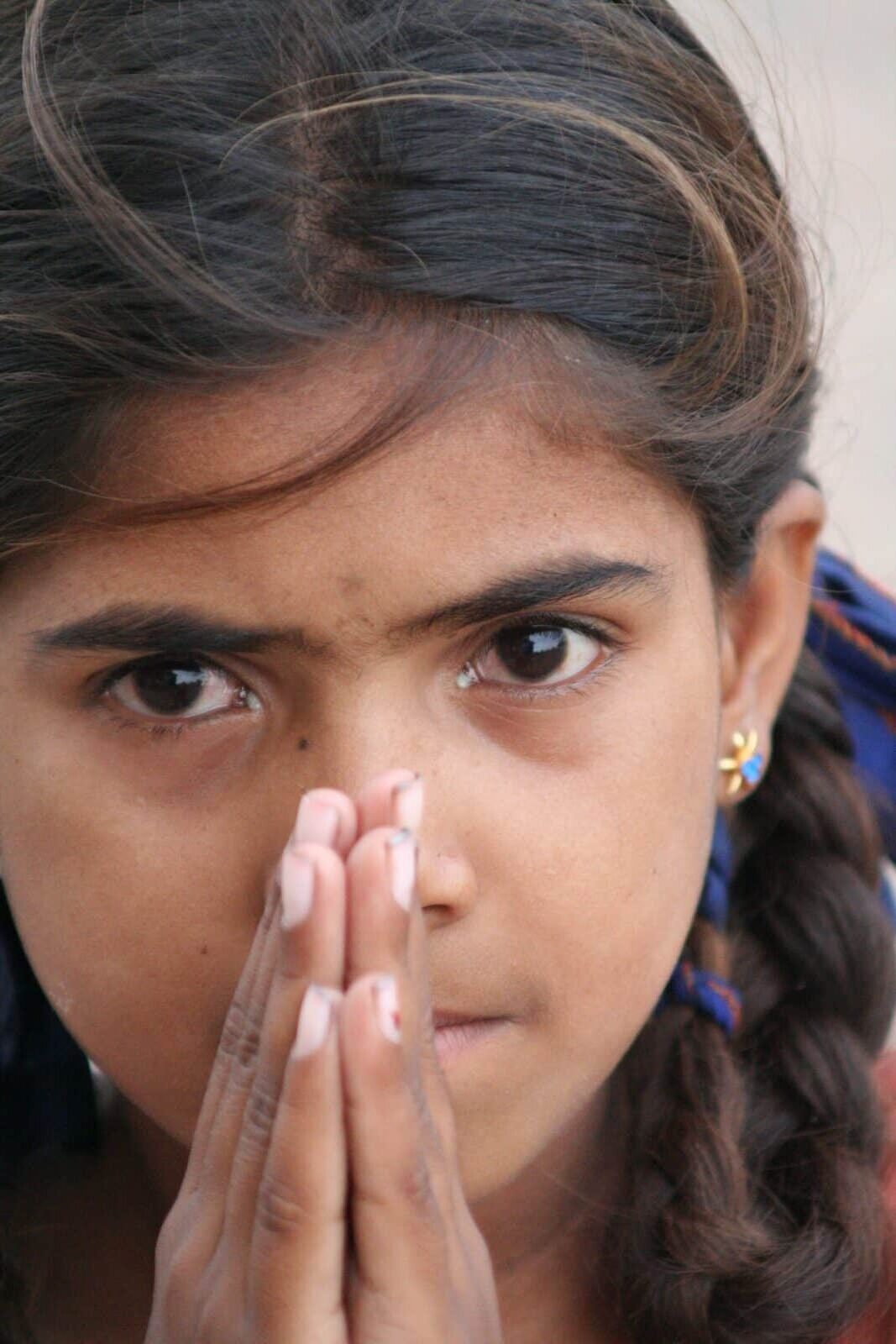
help us continue our vital work
With your support, we can continue our work improving the lives of those who need it most.

